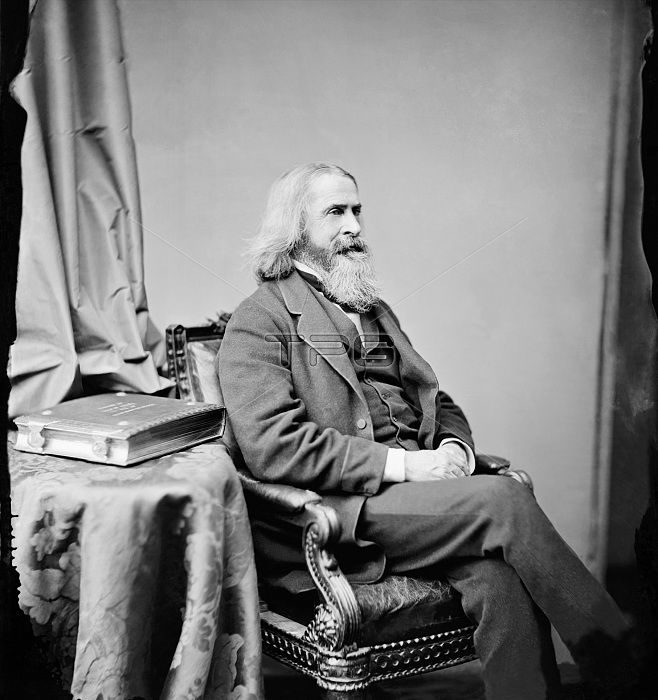
Benjamin Peirce (April 4, 1809 - October 6, 1880) was an American mathematician who taught at Harvard University for 50 years. He made contributions to celestial mechanics, statistics, number theory, algebra, and the philosophy of mathematics. After graduating from Harvard, he remained as a tutor (1829), and was subsequently appointed professor of mathematics in 1831. He added astronomy to his portfolio in 1842, and remained as Harvard professor until his death. In addition, he was instrumental in the development of Harvard's science curriculum, served as the college librarian, and was director of the US Coast Survey from 1867 to 1874. In number theory, he proved there is no odd perfect number with fewer than four prime factors. In algebra, he was notable for the study of associative algebras. He first introduced the terms idempotent and nilpotent in 1870 to describe elements of these algebras, and he also introduced the Peirce decomposition. Peirce proposed what came to be known as Peirce's Criterion for the statistical treatment of outliers, that is, of apparently extreme observations. His ideas were developed by his son, Charles Sanders Peirce. He was an expert witness in the Howland will forgery trial, where he was also assisted by his son. Their analysis of the questioned signature showed that it resembled another particular handwriting example so closely that the chances of such a match were statistically extremely remote. He died in 1880 at the age of 71.
| px | px | dpi | = | cm | x | cm | = | MB |
Details
Creative#:
TOP22162232
Source:
達志影像
Authorization Type:
RM
Release Information:
須由TPG 完整授權
Model Release:
No
Property Release:
No
Right to Privacy:
No
Same folder images:

 Loading
Loading